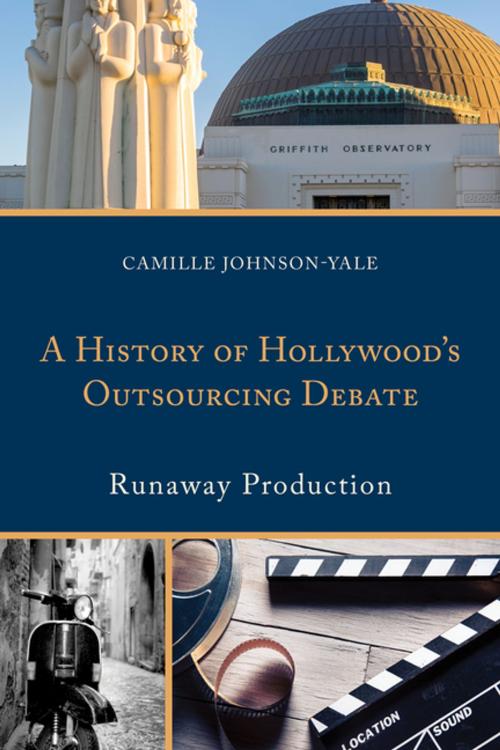A History of Hollywood’s Outsourcing Debate
Runaway Production
Nonfiction, Reference & Language, Language Arts, Communication| Author: | Camille Johnson-Yale | ISBN: | 9781498532549 |
| Publisher: | Lexington Books | Publication: | May 9, 2017 |
| Imprint: | Lexington Books | Language: | English |
| Author: | Camille Johnson-Yale |
| ISBN: | 9781498532549 |
| Publisher: | Lexington Books |
| Publication: | May 9, 2017 |
| Imprint: | Lexington Books |
| Language: | English |
A History of Hollywood’s Outsourcing Debate: Runaway Production provides a critical history of runaway production from its origins in postwar Hollywood to its present uses in describing a global network of diverse television and film production communities. Through extensive archival research, Camille Johnson-Yale chronicles Hollywood’s postwar push for investment in European production markets as a means for supporting the economy of America’s wartime allies while also opening industry access to lucrative trade relationships, exotic locations, and inexpensive skilled labor. For Hollywood’s studio production labor, however, the story of runaway production documents the gradual loss of power over the means of television and motion picture production. Though the phrase has taken on several meanings over its expansive history, it is argued that runaway production has ultimately served as a powerful, metaphorical rallying cry for a labor community coming to terms with a globalizing Hollywood industry that increasingly functions as an exportable process and less as a defined, industrial place.
A History of Hollywood’s Outsourcing Debate: Runaway Production provides a critical history of runaway production from its origins in postwar Hollywood to its present uses in describing a global network of diverse television and film production communities. Through extensive archival research, Camille Johnson-Yale chronicles Hollywood’s postwar push for investment in European production markets as a means for supporting the economy of America’s wartime allies while also opening industry access to lucrative trade relationships, exotic locations, and inexpensive skilled labor. For Hollywood’s studio production labor, however, the story of runaway production documents the gradual loss of power over the means of television and motion picture production. Though the phrase has taken on several meanings over its expansive history, it is argued that runaway production has ultimately served as a powerful, metaphorical rallying cry for a labor community coming to terms with a globalizing Hollywood industry that increasingly functions as an exportable process and less as a defined, industrial place.















